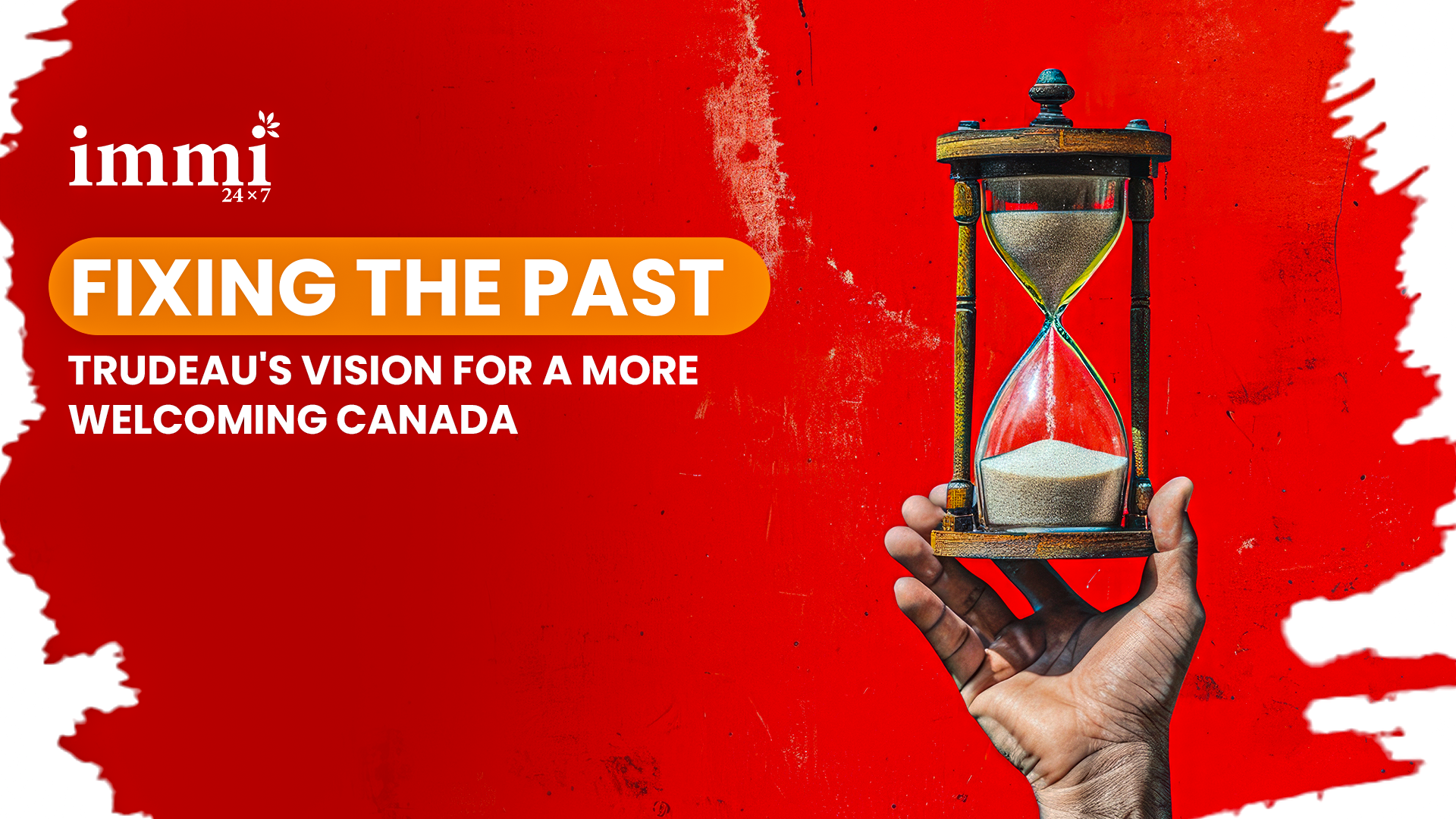
Canadian Prime Minister Justin Trudeau recently acknowledged that his government had made "mistakes" in its immigration policy, admitting that certain aspects of the system were exploited by "bad actors" like fake colleges and large corporations. This honest reflection comes as Canada faces unprecedented challenges stemming from rapid population growth, strained housing markets, and a growing need for skilled workers.
In a candid video posted to his YouTube channel, Trudeau shared insights on how the government is adjusting its immigration targets while underscoring the need to ensure the system is better aligned with Canada’s long-term needs. "We've seen too many actors abusing the system for personal gain. We've taken responsibility and are now making the necessary changes," he explained.
While the reduction in immigration targets might seem concerning to some, Trudeau quickly explained the rationale: "We want to stabilize population growth while allowing communities time to catch up with much-needed infrastructure projects, like building more homes."
Canada’s housing market, already under strain, is one of the key issues driving these changes. The government prioritizes immigrants with specific skills in healthcare, construction, and other sectors facing critical labour shortages. This strategic shift aims to bolster Canada’s workforce while ensuring that the quality of life for all Canadians remains high.
The government is also tightening regulations around international student visas to prevent exploitation of the system, including the introduction of a cap on the number of study permits. New rules will also limit work permits for graduates to those enrolled in programs directly linked to long-term labour shortages. The hope is to preserve the integrity of Canada’s education system and ensure that international students are equipped to fill key roles in the country’s economy.
For India, which is Canada’s largest source of international students, these new measures are undoubtedly a point of concern. However, it’s important to note that these changes are part of a broader effort to create a more sustainable and fair immigration system that benefits both newcomers and Canadian society as a whole.
India has long been a key partner in Canada’s immigration story, with tens of thousands of students arriving each year to pursue higher education. While the SDS program will be impacted, there are still opportunities for students to come to Canada through other immigration pathways.
Moreover, as Canada shifts its focus to meeting specific labour needs, skilled workers from India, particularly in sectors like healthcare, technology, and engineering, will continue to be highly sought after. Canada continues to welcome immigrants who are qualified to contribute to its growing economy, with job opportunities for those ready to fill key roles.
In the face of mounting challenges, Trudeau’s government is taking a measured approach to immigration. While the adjustments may seem like a step back, they reflect a larger goal: to ensure that Canada remains a welcoming, sustainable, and fair destination for immigrants from all over the world.
As Canada works to balance its immigration system, it is clear that the country remains deeply committed to its role as a top destination for skilled workers, students, and families. With the right policies in place, Canada will continue to be a beacon of opportunity for those seeking a better life.
These policy changes represent a critical opportunity for Canada to recalibrate and ensure that its immigration system not only supports economic growth but also safeguards the interests of its citizens and newcomers alike.
While the reduction in immigration numbers may seem like a retreat, it’s really a strategic pause to ensure that infrastructure and services can keep up with the growing population.
For India, the world's second-most populous country, the focus on skilled workers and education aligns well with Canada's long-term need for talent. This is a shift toward more responsible, targeted immigration—one that can strengthen both the Canadian economy and its communities. Also, the country offers various immigration pathways from India to allow skilled workers to immigrate to Canada and settle there.
In this light, Canada's immigration policy—while adjusting to new realities—remains a key pillar of its future growth and success. Immigrants, including those from India, will continue to play a vital role in shaping Canada's multicultural and dynamic society. Through these thoughtful reforms, Canada is poised to continue benefiting from a diverse and talented pool of immigrants while ensuring that its growth remains sustainable and beneficial for all.
Comments